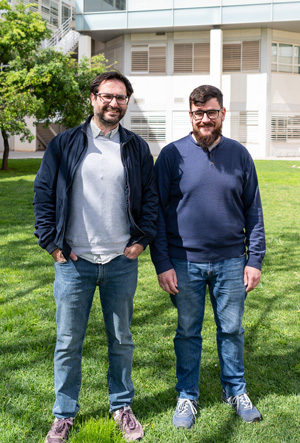Cancerless
A UPV team participates in a European project to prevent cancer and contribute to its early diagnosis in homeless people
[ 09/04/2024 ]
Cancer is one of the leading causes of death in the general population in Europe, and the mortality rate has doubled in the homeless population. This is due, among other things, to the significant barriers these people face in accessing healthcare systems and to different risk behaviours, such as tobacco use. Reducing these mortality figures and providing better care for homeless people by facilitating their access to the healthcare system is the aim of CANCERLESS, a European research project whose partners include the Universitat Politècnica de València (UPV), through the BDSLAB group of the ITACA Institute.
"The aim of all the project partners is to contribute to the prevention and early diagnosis of cancer in the homeless population and to overcome health inequalities," highlights Mª José Cardona, researcher at BDSLAB-ITACA of the Politècnica de València.
To achieve this, the project is developing an innovative methodology, the Health Navigator Model. "It is like a "big brother" at the service of the patient. It is an evidence-based model that facilitates patient empowerment through health education and social support and helps promote timely access to primary and secondary prevention services," explain the project partners.
Four pilot studies and microsimulations with patients devised à la carte
As part of the project, four pilot studies have been conducted in different cities - Madrid, London, Vienna and the Greek region of Attica - collecting data from a comprehensive - and always anonymised - questionnaire of homeless people. This questionnaire included socio-demographic and medical questions, as well as questions on risk behaviour - for example, levels of use of tobacco, alcohol or psychoactive substances, and exercise, among many others. Finally, there was an evaluation of the support from the 'big brother' developed as part of the project.
And it is in processing all this information that the team of UPV researchers involved in the project is working. "The information available on homeless people is qualitative. This project has made it possible to create a database of great value, allowing us to conduct a statistical analysis of enormous value in this population. And not only that, because with this information, we can generate microsimulations in different patient models to see the effects of the intervention of these "big brothers," adds Vicent Blanes, a researcher at the BDSLAB-ITACA of the UPV.
In this way, from the BDSLAB-ITACA of the UPV, they will generate synthetic patients à la carte and, through these statistical micro-simulations, they will check the results of an intervention. They will also be compared with other people/virtual models with different characteristics. "With all this, we can foresee the usefulness or otherwise of public policies in favour of better care and diagnosis for homeless people," concludes Vicent Blanes.
Risk factors, social support and education
Within the framework of this project, a study has found a higher prevalence of various risk factors associated with cancer among homeless people, the most common being tobacco use, which ranges from 26% to 73%.
The results highlight the importance of interventions to facilitate cancer prevention services through social support and training of healthcare staff to create a supportive and trusting environment that increases the likelihood of continuity of care for homeless people.
One of the most outstanding European projects
The project was highlighted by the European Executive Agency in the fields of Health and Digital (HaDEA) as one of the most relevant in the framework of World Cancer Day, celebrated last 4 February. Funded by the EU's Horizon 2020 programme, Cancerless is coordinated by the Medical University of Vienna and involves eleven partners. The project will be completed next May.
Outstanding news
 ARWU 2023
ARWU 2023
The Shanghai ranking reaffirms the UPV as the best polytechnic in Spain for yet another year
 Science Meets Regions CV 2023
Science Meets Regions CV 2023
The UPV and the Almussafes City Council begin a collaboration in search of solutions to maintain the automobile sector in the Valencia Region
 Scientific reference
Scientific reference
Avelino Corma, Distinguished Research Assistant at the UPV, awarded an Honorary Doctorate by the University of Huelva
 Micronanofabs NTC UPV-PERTE CHIP Conference
Micronanofabs NTC UPV-PERTE CHIP Conference
María Marced, TSMC Europe president: "The sector's future is bright, the market is expected to double by 2030"
 Goya nomination
Goya nomination
Javier Polo, who holds a degree in Audiovisual Communication from the UPV, directs the successful short documentary Una terapia de mierda
 Sant Carles Medal 2023
Sant Carles Medal 2023
The Faculty of Fine Arts of the UPV awards the Sant Carles Medal 2023 to outstanding Valencian art and culture figures







